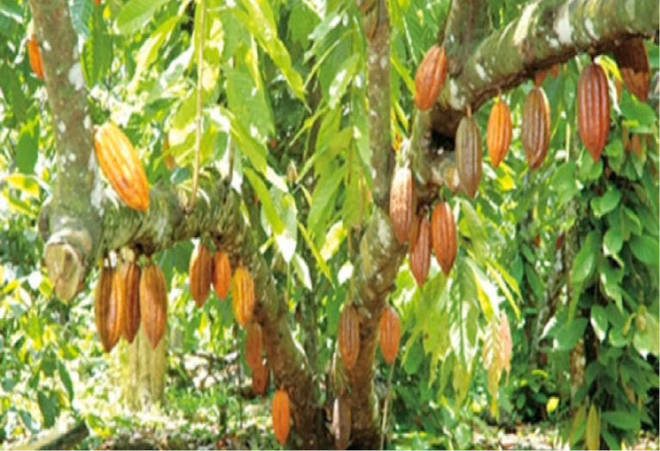
Cocoa is a household cash crop and key agricultural produce in Nigeria. It is used for local consumption and is also exported to generate foreign exchange for the country.
According to statistics, Nigeria produced 367,000 tons of cocoa in 2017.
The export data from 2017 shows that Nigeria exported 161,285.72 metric tonnes of agricultural produce. Cocoa export accounted for 33,294 out of this figure.
Given this figures, Nigeria is yet to tap into the potentials of the Cocoa industry in the continent when compared to Cote d’ Ivoire and Ghana.
This makes Nigeria the third producer of cocoa beans on the continent and fourth behind Indonesia. The Federal Government is focused on moving up the ranking as the producer of the cash crop over the next five years.
So what are the challenges faced in producing and exporting this Agricultural produce?
The challenges facing the country’s cocoa sector are so enormous. These are challenges that have impeded the success of the cocoa export at the international market.
Cocoa producers have not been able to meet the target set by the International Cocoa Organisation (ICCO) due to its challenges. Nigeria has been struggling to meet its target and as a result, the country loses $1 billion per year.
The Minister of Agriculture, Chief Audu Ogbeh, has attributed this to negligence to governments over the past 30 years. According to the minister, actual records of production and export are difficult to trace as they are not kept.
But according to Cocoa Farmers Association of Nigeria (CFAN), the challenges its members are facing are far more than record keeping.
The challenges include unfavourable weather conditions, lack of support from the government, and use of fake chemicals by farmers. There are no palliatives or incentives for the exports of cocoa in the country.
In Osun State, for instance, farmers were able to produce 30% of the projected cash crop in 2017 with no support from the state government. This was due to unfavourable weather, fake chemicals and lack of funds and financial support from the government.
Farmers in the state lack funds and most times are unable to pay their labourers. This challenges facing Osun State farmers have affected productivity and as a result, has led to a decrease in cocoa production.
In order for Nigeria to increase the cocoa production and export per year, the government needs to support the farmers. The government should offer support in form of subsidies, aids, loan and funds.
Government should also introduce economic policies that are favourable to the farmers. A bad economic policy will hinder the production levels of the farmers which will also lead to decrease in output.
If Nigeria is to climb up the rank, then government must act fast.
(NAN)

 Join Daily Trust WhatsApp Community For Quick Access To News and Happenings Around You.
Join Daily Trust WhatsApp Community For Quick Access To News and Happenings Around You.


